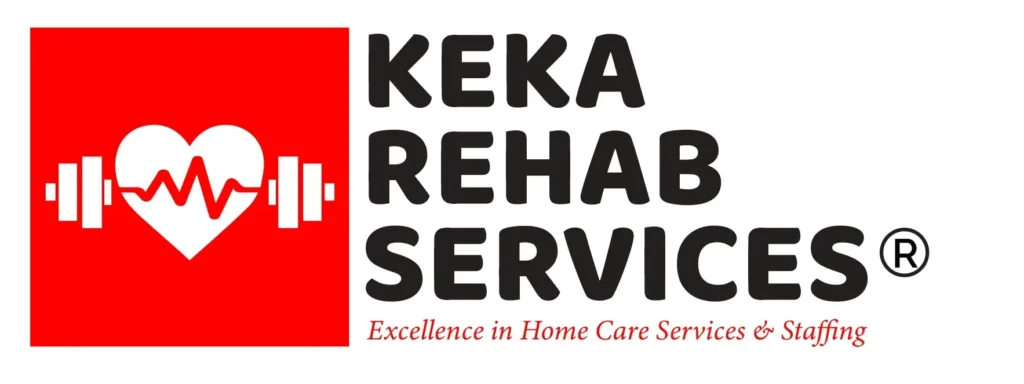Home health care nursing is changing how Americans get medical help. As we age or face health issues, being at home is key. Home health care services mix professional care with the comfort of home.
The need for these services is rising fast. Every day, about 10,000 baby boomers turn 65 in the U.S., increasing the demand for home care. Most people, 60%, prefer home care over hospital stays.
Home health agencies offer vital support for those with chronic illnesses or disabilities. They provide skilled nursing and personal care, helping patients stay independent. The National Association for Home Care & Hospice says over 12 million people in the U.S. get home health care each year.
Top providers are growing their services. Amedisys, for example, helped over 332,000 patients in 2023 across more than 330 agencies in 33 states. Enhabit Home Health & Hospice cared for over 172,000 patients last year, in 34 states.
The sector is expanding, with a 7% increase in home health care from 2021 to 2031. This growth is due to an aging population and the cost-effectiveness of home care. Home care costs about $54,000 a year, which is often cheaper than facility care.
When looking for home health care nursing, focus on quality and accreditation. Look for providers like At Home Nursing Care, which has a Five Star Rating on CareRate.com for elder care in San Diego and Los Angeles. Such ratings help find the best services in your area.
Key Takeaways
- Home health care nursing is growing rapidly due to an aging population
- 60% of people prefer receiving care at home
- Over 12 million Americans use home health care services annually
- Leading providers serve hundreds of thousands of patients across multiple states
- Home care can be more cost-effective, averaging $54,000 per year
- Quality ratings and accreditations are important when choosing a provider
Understanding Home Health Care Services
Home health care offers services for those recovering from surgery, injury, or managing chronic illnesses. It’s great for older adults facing health challenges.
Types of Care Services Available
Nurses provide skilled care like managing medications and treating wounds. Physical therapists help with moving around. Occupational therapists assist with daily tasks. Speech therapists work on communication issues. Home health aides offer personal care support.
Benefits of Home-Based Healthcare
Elderly home health care has many benefits. Patients often recover faster and manage symptoms better. It can slow down medical conditions and improve daily functioning. Home care may also reduce hospital visits, saving money and lowering risks.
Medicare Coverage and Eligibility
Medicare Part A covers home health services for free if you qualify. You need a doctor’s order for care. You must be “homebound,” needing help to leave your home. Coverage includes nursing, therapy, and social work support.
The cost of home health care is about $26 per hour. Costs vary by services, duration, and location. Always check with your insurance for coverage details.
Leading National Home Health Care Nursing Organizations
The home healthcare industry has many top organizations across the United States. They offer a wide range of services to help patients at home.
Amedisys Home Health Services
Amedisys is a top name in home healthcare. In 2023, they helped over 332,000 patients. They provide skilled nursing, therapy, and make care plans just for you.
Enhabit Home Health & Hospice
Enhabit Home Health & Hospice is second in patient care. They helped more than 172,000 people last year. They focus on both home health and hospice, giving ongoing care as needs change.
AccentCare Services Overview
AccentCare is third, serving over 159,000 patients in 34 states. They make sure many Americans get quality home care. They specialize in post-acute care and managing chronic diseases.
These top groups are part of a big industry. The National Association for Home Care & Hospice has over 33,000 members. With 500,000 home health workers and 3.5 million Medicare patients, the need for home care is growing.
Qualities of Top-Rated Home Health Care Providers
Skilled nursing care at home needs providers with top qualities. The best agencies have staff known for being professional, compassionate, and reliable. These qualities lead to better care and happier patients.

Experience is key in home care. Caregivers with more than 5 years of experience do a better job. They make patients’ lives better. Also, having licensed and certified staff makes families trust them more.
Good communication is essential in home care. Staff who communicate well and are kind improve care by over 30%. This helps manage health better.
- Personalized care plans
- Ongoing staff training
- Adaptability to changing patient needs
Quality home care makes seniors’ lives better. It keeps them safe and comfortable. About 90% of seniors are happy with their care. This shows how important skilled nursing care at home is.
When picking a home health care provider, look for these qualities. They lead to better care, improved health, and a better experience for everyone.
Essential Home Health Care Nursing Services
Home visit nursing services provide many important care options for patients at home. They meet different needs, from medical treatments to daily living help.
Skilled Nursing Care
Skilled nursing care is key in home health services. Registered nurses and licensed practical nurses offer medical care like wound treatment and medication management. They also monitor health and do medical tests.
Personal Care Assistance
Personal care assistance helps with daily tasks. This includes bathing, dressing, meal prep, and light housekeeping. These services are vital for keeping independence and quality of life at home.
Rehabilitation Services
Rehabilitation services are a big part of home health care. Physical, occupational, and speech therapists visit patients at home. They work to improve mobility, enhance daily living skills, and address communication issues.
Home visit nursing services start with a doctor’s prescription for at-home support. The care team may include different professionals based on the patient’s needs. While Medicare covers some costs, many services are paid out-of-pocket or through long-term care insurance.
Choosing the Right Home Healthcare Agency
Choosing the right home health care nursing provider is important. First, check if the agency is certified for Medicare and Medicaid. This ensures they are covered by these programs. Also, look for agencies with high quality scores, three or above, from the Centers for Medicare and Medicaid Services.
See what services the agency offers. Home care can range from simple companionship to skilled nursing. This meets different needs. Make sure they create care plans that fit your specific needs.
Check the qualifications of the caregivers. They must have at least 75 hours of training. Also, ask if they have certifications like CPR and First Aid. The number of caregivers per client also shows the quality of care.
Think about practical things too:
- 24/7 availability for emergency care
- Clear communication of costs and insurance coverage
- Accreditation by organizations like ACHC or Joint Commission
- Cultural sensitivity in caregiver matching
Look at what others say about the agency. Good nursing home care services will give you references. Listen to what people say about the quality of care and support.
Lastly, know the agency’s policies on reassessments, service agreements, and cancellations. This will help you find the best home health care nursing provider for you.
Home Health Care Nursing Standards and Regulations
Home health care nursing follows strict rules to ensure quality care. Almost 5 million patients get care at home in the U.S. each year. This shows how important these guidelines are. Let’s look at the main points of these standards.
Licensing Requirements
Home health agencies need the right license to operate. Medicare helps by covering services from certified providers. This lowers costs for patients. Agencies must meet certain criteria and stay certified to qualify for Medicare.
Quality Assurance Measures
Quality is key in home health care. Agencies use surveys and inspections to keep standards high. The American Nurses Association (ANA) updates its nursing standards often.

Staff Certifications
Home health aides and nurses must pass tough certification tests. Even though only 11% of nurses work in home care, the demand is rising. Training keeps staff up-to-date with new care methods and technology.
The nursing scope in home health includes 16 standards. These cover assessment, diagnosis, planning, and evaluation. These standards help ensure patients get the best care from home health aides.
Cost Considerations and Payment Options
When planning for elderly care at home, knowing the costs is key. The prices for home healthcare services can change a lot. This depends on the type of care needed and where you live.
For those needing care all day, the cost is about $21,823 a month. This is more than what nursing homes charge, which is between $7,900 and $9,000 a month. Nursing home costs in the U.S. are $8,669 for a shared room and $9,733 for a private room.
- Medicare: Covers up to 100 days of skilled nursing care after a hospital stay.
- Medicaid: Helps pay for 62% of nursing home residents’ care in 2020.
- Private insurance
- Out-of-pocket payments
Remember, costs can differ a lot by state and city. For example, in Maine, a shared room costs $12,197 a month. In Georgia, it’s $7,939. Home health care for post-surgery can cost $25 to $100 an hour.
It’s smart to plan for future healthcare needs. By 2018, 51% of Medicare users had extra coverage, and 39% were in Medicare Advantage. This info helps you choose the right healthcare plan and understand what you might pay out of pocket.
Specialized Care Programs and Services
Home health care agencies offer tailored programs for different patient needs. They mix skilled nursing care at home with special approaches for complex conditions.
Dementia and Alzheimer’s Care
Special care for dementia patients focuses on safety and managing symptoms. Trained nurses offer home visit nursing services. They help families deal with challenges and keep their loved ones’ quality of life high.
Post-Hospital Recovery Care
After hospital stays, skilled nursing care at home helps with recovery and lowers readmission risks. Medicare covers home health services for those who are homebound and need part-time skilled care. This care includes wound treatment, patient education, and monitoring serious illnesses.
Chronic Disease Management
Home health nurses manage ongoing conditions like diabetes or heart disease. They offer up to 8 hours of care daily, with a weekly limit of 28 hours. Agencies like VNS Health care for 51,000 patients daily and offer services in over 50 languages.
These programs aim to improve patient outcomes and comfort. They need close communication between home health staff and doctors for proper care. While Medicare doesn’t cover 24-hour care, it does cover many essential home health services.
Technology in Home Health Care Nursing
Technology is changing home health care nursing, making patient care better and operations smoother. Remote monitoring devices collect vital signs and health data, helping prevent and manage diseases. This change lets in-home nursing care providers care for more patients at once.
Telehealth apps help manage chronic conditions like asthma and diabetes. The TeleHomeCare project at the University of Minnesota used low-cost devices for patients with heart failure, lung disease, or wounds. These tools help nurses give better care from afar.
Electronic health records make care coordination in home health care nursing better. The Diabetes Education and Telemedicine Project (IDEATel) lets patients check their records and talk to nurse case managers via secure email. This system alerts nurses when patient values go over set limits, helping them act quickly.
Smart home technologies improve patient safety and independence. Devices like personal emergency response systems can call for help and detect falls. Passive systems use carpet sensors to find falls without needing to be turned on. These innovations give patients and caregivers peace of mind in home care settings.
While technology brings many benefits, it also has challenges in home health care nursing. Limited funding can make services hard to get, mainly in rural areas. Yet, as technology gets better, it will likely make in-home nursing care more available and effective for patients all over the United States.
Conclusion
Home health care nursing has grown a lot over the years. By 1916, over 221,566 people got more than 1 million nursing visits thanks to insurance. Today, it keeps getting better, helping patients and their families a lot.
When thinking about nursing home care, remember nurses can make $70,000 to $90,000 a year. They work flexible hours, like nights or four days a week. They give medicine, manage pain, and teach patients about their health, all in different homes.
The field of home health care nursing is growing fast, helping more people as they age. But, there are challenges like making care safer and doing more research. The Agency for Healthcare Research and Quality says we need to focus on falls, pressure ulcers, infections, and medicine mistakes. When looking for care, think about these things to get the best results.
When picking a home health care provider, look at their skills, what they offer, and if they can meet your needs. Good care can really improve life, letting people stay independent and get medical help at home.
FAQ
What is home health care nursing?
Home health care nursing is medical care given in a patient’s home. It includes skilled nursing, personal care, and rehabilitation. These services are tailored to meet each patient’s health needs.
Who qualifies for home health care services?
People who are homebound and need skilled nursing or therapy qualify. This includes those recovering from surgery or managing chronic conditions. It also includes those needing daily help due to age or disability.
Does Medicare cover home health care?
Yes, Medicare covers home health care for eligible individuals. It includes skilled nursing, physical therapy, and speech therapy. These services must be medically necessary and prescribed by a doctor.
How do I choose the right home health care agency?
Look at the agency’s reputation, services, and staff qualifications. Check patient reviews and their licensing and certifications. It’s also important to review their care plans and emergency procedures.
What services do home health aides provide?
Home health aides help with bathing, dressing, and grooming. They also prepare meals and assist with light housekeeping. They may remind patients to take medication and monitor their vital signs.
How much does home health care cost?
Home health care costs vary based on the care needed and location. It can cost between to 0+ per hour. Many services are covered by Medicare, Medicaid, or private insurance.
What is the difference between home health care and home care?
Home health care involves skilled medical services by licensed professionals. Home care is non-medical help with daily activities. Home health care is often prescribed by a doctor and may be covered by insurance.
Can home health care provide 24/7 services?
Yes, many agencies offer 24/7 services for patients needing round-the-clock care. This includes continuous nursing or a mix of nursing and personal care.
What specialized care programs are available through home health care?
Specialized programs include care for dementia and Alzheimer’s, post-hospital recovery, and chronic disease management. These programs are tailored to specific health needs.
How is technology used in home health care nursing?
Technology includes remote monitoring devices, telehealth, electronic health records, and smart home tech. These tools improve patient safety, communication, and care delivery efficiency.








